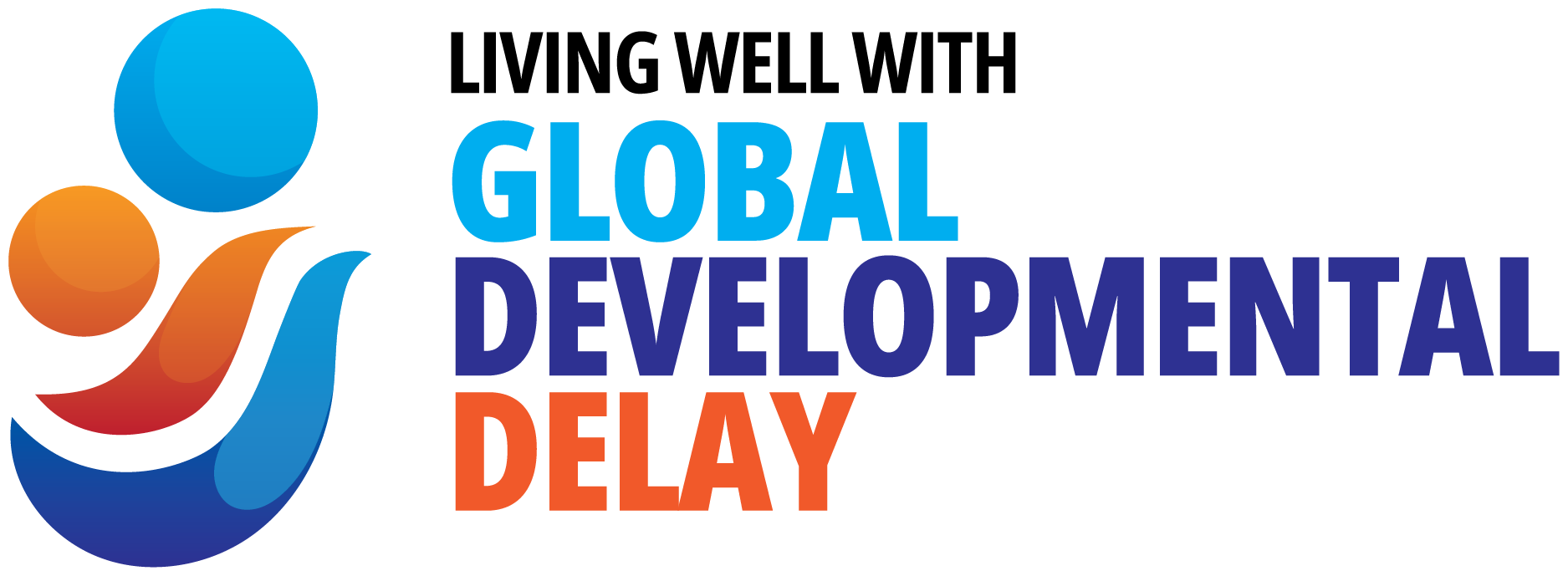- It is up to you how and what you share with family, friends, and people in the community who may interact with your child and family
- It can be helpful to educate people about what Global Developmental Delay means and the strengths and needs of your child
- It can be helpful to tell people what support your child needs and how they can best help your child and family
Telling others about your child’s delay
Key Messages

Families do not live in a vacuum. Interactions and relationships with family and friends, and even with others in the community can affect children and families. Also, children and families do best when they are well supported by others. Therefore, the relationships and interactions with others become very important for child and family wellbeing. When your child has a delay, attention may need to be given to educating others so they understand what your child needs, and value and appreciate your child for who they are.
Most family, friends, and members of the community want to support children with delays and their families. Often, they may not understand your child’s difficulties or feel uncertain about what to say or do. Opening up communication about this can help build stronger relationships with important people in your life.
All parents face the challenge of understanding what their children need and how to support their development. But this challenge can be even more acute when your child has global developmental delay.
Extended family and close friends
You might find it helpful to tell your family and close friends about your child’s delay. If they have a greater understanding of your child’s needs, they may be able to support you more. That’s not to say it will be easy, and you need to be prepared to repair ruptures in these relationships along the way.
It is up to you what you share and how you share it. Sometimes people find it easier to write ideas down. Here is an example of one way of sharing information with others. You can change this to suit your child and family.
Letter to my family and friends,
My child has a global developmental delay. This means that my child is slower to develop physical, emotional, social, and communication skills than other children their age. They may have difficulties with everyday tasks such as eating or getting dressed. These delays might only be short-term, or they may be long-term.
You might notice that my child moves, communicates, or behaves a little differently from other children their age. Like all children, my child will keep growing and learning, but they may learn skills a little slower and might learn differently from other children.
It is not contagious and no one is to blame. Lots of different things can cause it. It can be caused by genetic conditions or complications during pregnancy or birth or other things like physical illness. For lots of children, the cause is not known.
Very few people understand what having a global developmental delay means, and I have spent many days, weeks and even months meeting with specialists to help me understand what is happening to my child. This journey will continue as we will work with different specialists as my child grows and changes.
It is important to my child and family that the people in our life understand what is happening, feel comfortable talking with me about this, and have ideas for how to interact with my child and support my family.
Please treat my child just like any other child
My child has the same needs as other children – to be loved, to be safe, to be healthy, and to have lots of opportunities to explore the world and mix with other children. So, have fun with them, praise them, and invite them to the birthday party.
My child might need some extra support
My child may be slower to learn than other children. They learn skills better when they are broken into smaller, simpler steps. They might need more time and opportunities to practise new skills.
They might be slower than usual to respond or appear to react poorly to caregiving. This can be off-putting for the people around them. The most important thing you can do is develop a close bond with them and be sensitive and responsive as your relationship with them develops over time.
We want you to be a part of our life and enjoy a loving relationship with our child. Please be patient and see our child for who they are, not their delay.
Yours sincerely.
People in the community who may interact with your child
People in your everyday interactions, such as at the local shops or the doctor’s waiting room, respond differently to a child with delays. Some people may respond in a positive and helpful way. Other people, unfortunately, may respond in an unhelpful or negative way and they may say hurtful things. They may not understand developmental delays and make judgements that are incorrect and nasty.
Some parents might find it useful for their child to wear a Sunflower lanyard. Although this is not known by everyone in the community, it is a sign that the child has a non-visible disability and encourages people to be understanding and supportive. You can find out more about the Sunflower lanyard here: A symbol for non-visible disabilities, also known as hidden disabilities or invisible disabilities. (hiddendisabilitiesshop.com.au)
It is natural to be upset by negative interactions. How you respond will depend on many things such as where you were, who was involved, and how you are feeling on the day. It can be helpful to think about how you might wish to respond to such situations in advance. There is no right or wrong response, but thinking ahead will help you prepare for how you would like to respond.

You might wish to:
- Not respond. You might ignore the comment and walk away.
- Take a deep breath so you can deliver a calm response, especially given your child is watching.
- Provide an explanation so that the community member and those around them learn about delays. For example, you might say “Jack has some developmental delays so he is still learning to wait his turn”.
- Explain that such comments are hurtful. For example, you might say “It is very hurtful when people say negative things about a child’s development”.
- Use a prepared standard response. For example, you might say “It sounds like you need to educate yourself about child development. I can provide you with some website links”.
- Talk with other parents and share your experiences. Talking about your bad experience can help you to feel better, and you can also prepare yourself by hearing how others handle these situations.
When a person in the community will have ongoing involvement with your child, such as a swimming teacher or soccer coach, it is useful to tell them about your child’s strengths and needs. They will be better prepared which will increase the success of your child’s experience.
It is up to you what you share and how you share it. Here are some suggestions for what you might like to share:
- Start with a positive statement about their involvement (e.g. It is so great you are teaching Jack swimming this summer, he is looking forward to it.)
- Tell them that your child has a delay (e.g. I thought it was important for you to know that Jack has a developmental delay.)
- Explain their strengths (e.g. Jack loves the water. He is really good at diving under to find toys that we hide for him in the pool.)
- Explain their needs (e.g., This means that Jack learns a little slower than other children his age and he has trouble when too many instructions are given at one time.)
- Provide strategies that are helpful for your child and be specific. Discuss how these strategies might work with what they are already doing (e.g. He might need help to know when he has to wait his turn. When he is holding the ‘wait’ visual card at home he knows he has to wait. You could also use this in the swimming lessons.)
- Finally, invite open communication (e.g., We are looking forward to a great swimming term, I’ll keep in touch with you but please contact me if you would like to talk at any time.)
If you feel distressed thinking and reading about this topic,
talk to your GP or health professional. You can also call Lifeline on 131 114.
American Psychiatric Association (2022). Diagnostic and Statistical Manual of Mental Disorders : DSM-5-TR. Fifth edition, text revision. Washington, DC: American Psychiatric Association Publishing.
